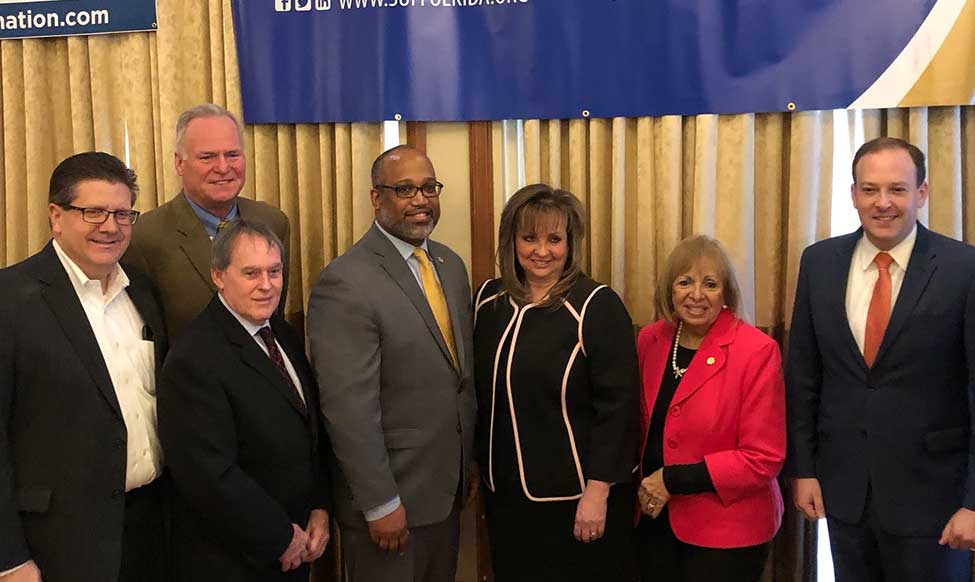HIA-LI Board Chairman Joe Campolo delivered these remarks at HIA-LI’s Annual Meeting & Legislative Breakfast on January 18 2019.
I’d like to welcome everyone to our Annual Meeting and Legislative Breakfast. Thank you for being here this morning. As Chairman of the HIA-LI Board of Directors and a Long Island business owner, I’m honored to join you as the moderator for this event as we embark on a new year for Long Island business and for the continued prosperity of our region.
As steward of the Hauppauge Industrial Park, the second largest in the nation behind only Silicon Valley, HIA-LI has spent the last several years working tirelessly to spread the word about this incredible economic engine. And we have indeed made an enormous impact. One of my proudest accomplishments as Board Chairman is our success in making these numbers and these facts so well known; so much so that the HIP’s identity as a regional economic powerhouse is no longer a secret, but rather part of the fabric and story of Long Island.
Long Island is an amazing place, and due to the ingenuity and hard work of public/private partnerships, we are seeing enormous investments in our region resulting in the revitalization of many of Long Island’s unique downtowns, as well as significant improvement in transportation with the addition of the third track, a renewed commitment to McArthur Airport, and continued improvements in sewer infrastructure and water quality. These investments will lead to, and require, private sector jobs, and the key objective of the HIA is to foster that growth, and in particular the growth of competitive tradeable industries here on Long Island. These include things like aerospace, construction, biopharma, distribution and e-commerce, food processing, business services, education and research, and IT. The Park already has a higher proportion of these businesses than anywhere else on Long Island, which is important as these sectors represent the highest ratio of new jobs and new dollars to our region. Our mission is to accelerate this growth by providing the necessary facilities, amenities, talent pool, and knowledge infrastructure to the Park– as well as by marketing and branding the Park as the region’s premier hub for growing businesses.
We’ve made significant progress, but we need to be relentless about doing better. This country was built on a capitalist model because our founding fathers understood that innovation and the entrepreneurial spirit would always trump government gridlock. We are fortunate to have elected officials who get it, and continue to express a renewed commitment to investing in the Park. We thank them and assure them that, in return, we at the HIA-LI will always tirelessly fight for Long Island and its business community.
Thank you.








